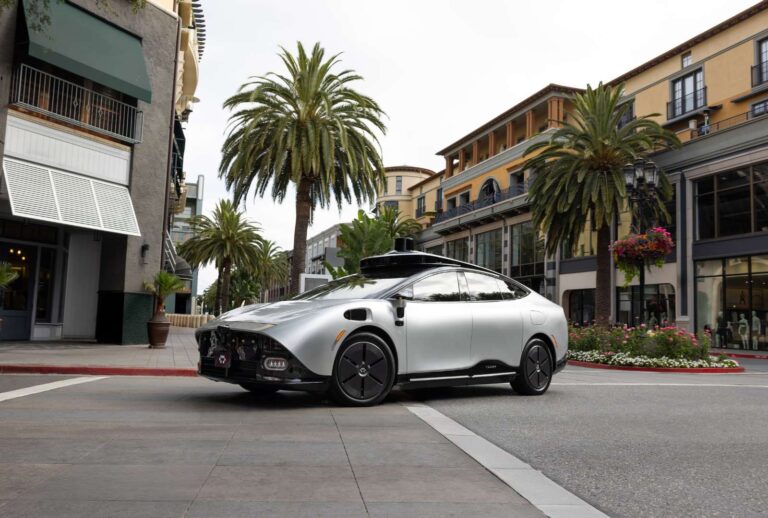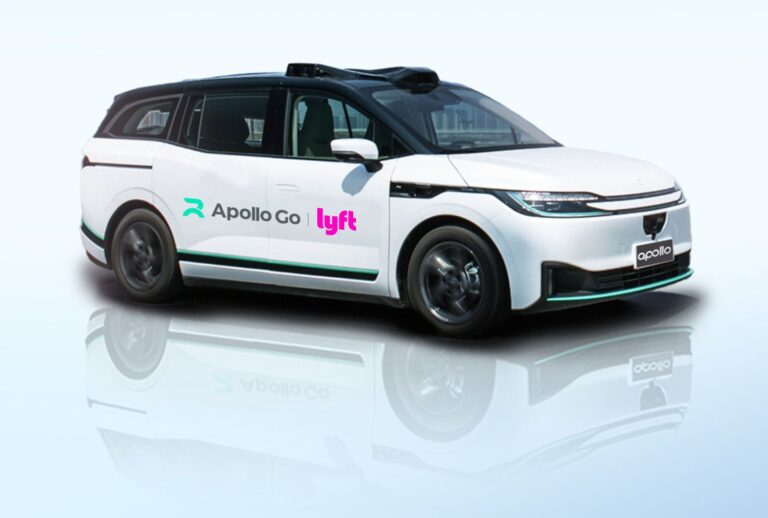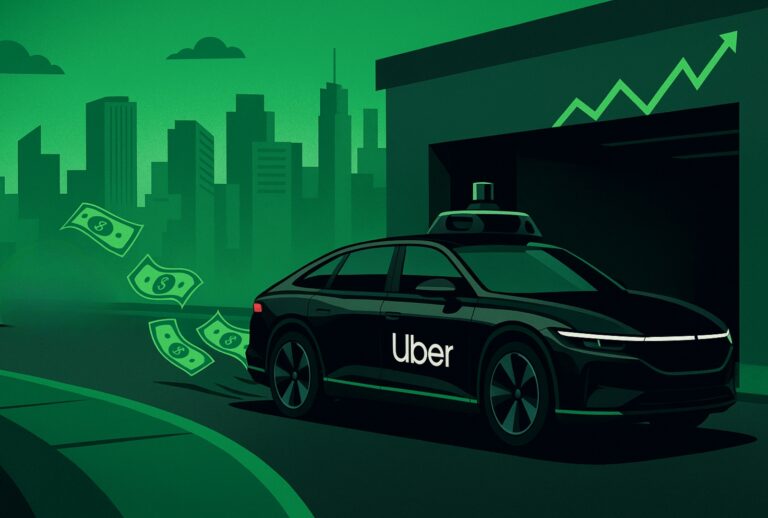A Bet on Uber is a Bet on Global Autonomy

May 11, 2025
This Week in The Autonomy Economy is presented by Koop, a specialist insurance provider focused on robotics and autonomous vehicles.
This Week in The Autonomy Economy, Sterling Anderson suddenly resigned from Aurora, Dara Khosrowshahi’s masterful dealmaking at Uber was once again on full display and we hit the road and headed to D.C.
Each and every week in the autonomy economy, things are happening. As the U.S. economy teeters on the edge of recession and concerns about consumer spending grow, investors are once again turning their attention to autonomy markets.
Autonomy is back in vogue and this time, it’s different. Autonomy is no longer a science project, autonomy is now a business. Every single day in multiple cities across the U.S., Waymo is transporting paying passengers, Kodiak is autonomously delivering fracking sand in the Permian Basin, and Aurora is operating driverless freight runs between Dallas and Houston.
Five years ago, this wasn’t the case. Back then, the hype was boiling hot, and when the bubble burst, companies folded and many left the industry, as they lost hope and saw no path forward.
But some of us believed in the future of autonomy. We doubled down, stayed the course, and adapted as needed. Today, that persistence is paying off as autonomy has officially become a business.
Looking ahead towards the end of the decade, autonomy is going to emerge into an economy that we call the autonomy economy. To help guide and grow this emerging economy, Grayson Brulte, Founder & CEO of The Road to Autonomy established The Council for Economic Resilience.
The Council for Economic Resilience is dedicated to promoting autonomy and automation to strengthen the U.S. economy, foster innovation, create jobs, and enhance global competitiveness. In the coming weeks, we will be making a big announcement, stay tuned. Big things are happening.
👔The Road to Autonomy provides market intelligence and strategic advisory services to institutional investors and companies, delivering insights needed to stay ahead of emerging trends in the autonomy economy. To learn more, say hello (at) roadtoautonomy.com.
Subscribe to This Week in The Autonomy Economy™
Join institutional investors and industry leaders who read This Week in The Autonomy Economy every Sunday. Each edition delivers exclusive insight and commentary on the autonomy economy, helping you stay ahead of what’s next.
What’s Moving the Markets
A Bet on Uber is a Bet on Global Autonomy

Dara Khosrowshahi is giving a masterclass in how to build an autonomy business. Once written off in autonomy after selling ATG to Aurora in 2020, and overshadowed by Waymo’s accelerated growth, Uber has re-emerged as one of the most critically important companies in the autonomy economy.
Today, Uber is leveraging their platform to do what they do best, acting as a global marketplace. It’s a strategy that is working, as Uber is now facilitating 1.5 million autonomous rides and delivery trips per year.
In Austin, where Waymo operates exclusively on Uber, the fleet of 100 Waymo vehicles is now busier than over 99% of all drivers in Austin in terms of completed trips per day. Over the coming months, Uber and Waymo are planning to add hundreds of more vehicles to the fleet. Followed by the launch of the Atlanta market this summer.
While Waymo is powering Uber’s autonomy growth today, Uber has built a network of 18 autonomous vehicle partnerships across the globe. With more autonomous vehicles expected to come onto the network later this year and early next year.
In Abu Dhabi, riders can already hail a WeRide autonomous vehicle through the Uber app, with Dubai next. Later this year, Pony.ai will launch in a Middle Eastern market, and in 2026, Momenta AVs will come online Europe on the Uber network.
And this is just the beginning as Uber works diligently to grab global AV market share and fragment the market before Waymo and eventually Tesla commercialize international markets. The more fragmented the autonomy market becomes, the more Uber wins.
Our take: As Uber continues to scale their autonomy strategy, the company could become the biggest operator of autonomous vehicles in the word. To the Tesla bulls, yes potentially even larger than the Tesla network. Mr. Khosrowshahi, keep executing sir, it’s working.
Uber is currently ranked #1 with a bullish outlook on the AUTONOMY LEADERBOARD in the software platforms category.
Advocating For The Autonomy Economy | Sponsored

Automation and autonomy will strengthen the economy, create jobs, and reduce inflation. Council for Economic Resilience is dedicated to promoting the future of autonomy and automation for the benefit of the American public.
Get Engaged, Learn More visit CNFER.org
Council for Economic Resilience, Inc. is a 501(c)4 Advocacy Group that is dedicated to promoting the future of autonomy and automation for the benefit of the American people.
Waymo Prepares for D.C. Launch as Hospitality Sector Anticipates Autonomy-Driven Growth

This week, we hit the road and traveled to Washington, D.C., to gain firsthand insight into Waymo’s operations in the District. Waymo is currently operating a small fleet (we estimate to be between 5 and 10 vehicles) bearing Arizona plates and operating during limited hours.
The current operational window is 5 p.m. to 11 p.m. EST, with vehicles being deployed from the Union Market parking lot in the NoMa district. Notably, there is no dedicated physical infrastructure in place. Charging is taking place at the Walmart Supercenter (Electrify America) and Safeway (EVgo) in the Brightwood neighborhood.
While the setup is still primitive, the individuals we spoke with seemed content with the current setup. One particularly interesting insight from our conversations was that a majority of safety drivers reportedly avoid testing Georgetown due to its narrow roads. Ironically, Georgetown is where we observed the highest testing activity, spotting three different Waymo vehicles running similar routes.
For Waymo to begin commercial operations in D.C., current regulations will need to be updated to allow fully autonomous ride-hailing. Encouragingly, there is a clear regulatory path forward and strong interest from local stakeholders in making it happen.
In conversations with hospitality professionals, enthusiasm for Waymo’s commercial launch was high. One individual noted that they expect to see an uptick in liquor and wine sales, pointing out that the “Do I drive and not drink or drink and risk a bad Uber ride?”, a dilemma that disappears with a consistent, autonomous vehicle experience.
When that dilemma disappears and an individual chooses to drink, their tab increases along with the profit that the restaurant or bar will make from that tab. Selling liquor and wine is highly profitable with margins of around 60-80%.
Legendary businessman, Samuel Bronfman, Founder of Distillers Corporation and later owner of Seagram through a merger, once famously said:
The real money in the hotel business is in the bar.
– Samuel Bronfman (1889–1971)
Mr. Bronfman was and still is right. The goal is to own the profitable asset that can be refilled endlessly and profitably to your customer’s delight. But if your customer has to drive or face the Uber dilemma that model breaks down. With Waymo, however, that model becomes viable and in our belief there is a clear path to a regulatory change that would allow Waymo to operate in the District.
When Waymo launches commercial service in the District, the broader economic impact could be substantial. In 2024, D.C. welcomed 27.2 million visitors who spent $11.4 billion, generated $2.3 billion in tax revenue, and supported 111,500 jobs, accounting for 17.6% of the private workforce.
If the transportation experience D.C. becomes more consistent and enjoyable, it stands to reason that visitors will spend more, drink more and stay longer. And the more they drink, the more restaurants and bars stand to gain through increased profits.
Our take: Autonomy is good for the economy. Waymo will have a positive economic impact on D.C. when they begin commercial operations in the District.
Waymo is currently ranked #1 with a bullish outlook on the AUTONOMY LEADERBOARD in the autonomous vehicles category.
Piquing Our Interest
Waymo’s Jaguar I-PACE Robotaxi Fleet Set to Expand to 3,500 Vehicles by 2026 Waymo’s Jaguar I-PACE fleet is set to increase to 3,500 vehicles, following the final delivery of 2,000 units from Jaguar, signaling the end of an era for the I-PACE.
When Waymo’s Fleet Grows to 10,000 Vehicles, Annual Revenue Could Reach $2 Billion That estimate comes from Alan Ohnsman at Forbes, who projects that with 10,000 Waymo vehicles on the road, the fleet would be able to manage 250,000 rides per day, translating to roughly 1.75 million rides per week. Assuming an average fare of $15 per ride, that would translate to over $26 million in weekly revenue, or approximately $2 billion annually.
Amazon’s Zoox is Preparing to Ramp Up Robotaxi Production in 2026 Amazon’s Zoox is preparing to ramp up production of their bespoke robotaxis in the Bay Area next year. Could this be a sign that Zoox is getting closer to a commercial launch?
Autonomous Vehicles are an Absolutely Extraordinary Opportunity for Lyft Those were the words of Lyft CEO David Risher on the company’s Q1 2025 earnings call. Lyft is clearly fully committed to autonomy and the key questions now are how quickly they integrate additional autonomous vehicle partners and expand their AV strategy globally.
Uber Further Fragments Global Robotaxi Market This week, Uber invested $100 million in WeRide to support expansion into 15 additional cities and announced a strategic partnership with Pony.ai to deploy robotaxis internationally on the Uber platform.
Sterling Anderson Exits Aurora, Stage Left In a surprising move, Sterling Anderson has resigned as Chief Product Officer and Board Member of Aurora to join an iconic global company in a senior leadership role.
Foxconn Officially Enters the Automotive Industry After multiple attempts, Foxconn has officially entered the automotive industry. This week, the company announced a deal with Mitsubishi Motors to develop and build an electric vehicle for the Oceania region (Australia and New Zealand). First EVs, next AVs. Soon, Foxconn will become the to go contract manufacturer for bespoke AVs.
📰 Before these stories were featured here, they were available on X. Follow @RoadToAutonomy today to stay up-to-date on the latest news and developments shaping the autonomy economy.
Social Buzz
Sir Richard Rides a Wayve in London
Sir Richard Branson caught a Wayve in London, arriving at the opening of Virgin’s first hotel in the city in a Wayve autonomous vehicle. The grand entrance continues Branson’s long tradition of bold promotional stunts, arriving on horseback for the launch of Virgin Hotels Nashville in 2020 to ziplining off the roof at the Virgin Hotels Las Vegas opening in 2021.
Virgin invested in Wayve back in 2020. Following the experience, Alex Kendall, Co-Founder and CEO of Wayve, shared his reflections in a blog post, which you can read here.
Our take: Wayve surfed their way into Virgin history.
Wayve is currently ranked #1 with a bullish outlook on the AUTONOMY LEADERBOARD in the licensing category.
Nuro Begins Testing in Las Vegas
As Nuro gradually moves towards licensing the Nuro driver, the company has expanded testing from it’s closed-course testing facility at the Las Vegas Motor Speedway to the Las Vegas Strip.
Our take: It’s only a matter of time before Nuro announces an OEM licensing partner.
Nuro is currently ranked #2 with a positive outlook on the AUTONOMY LEADERBOARD in the licensing category.
Latest The Road to Autonomy Podcast
Autonomous Trucking Is Reviving Local Communities, One Route at a Time

Earl Adams Jr., Vice President for Policy and Regulatory Affairs, Plus joined Grayson Brulte on The Road to Autonomy podcast to discuss how autonomous trucking is poised to transform local communities, economically, socially, and operationally.
Watch on YouTube | Spotify | X
Listen on Apple Podcasts
May 6, 2025
Latest Autonomy Markets Podcast
What’s Going On at Aurora? Why Waymo Needs More Cars, and Has Waymo Cooled on Lyft?

This week on Autonomy Markets, Grayson Brulte and Walter Piecyk discuss the sudden resignation of Aurora Co-Founder Sterling Anderson, Waymo’s scaling challenges, and whether Lyft is being left behind as Uber accelerates its global autonomy push.
Watch on YouTube | Spotify | X
Listen on Apple Podcasts
May 10, 2025




